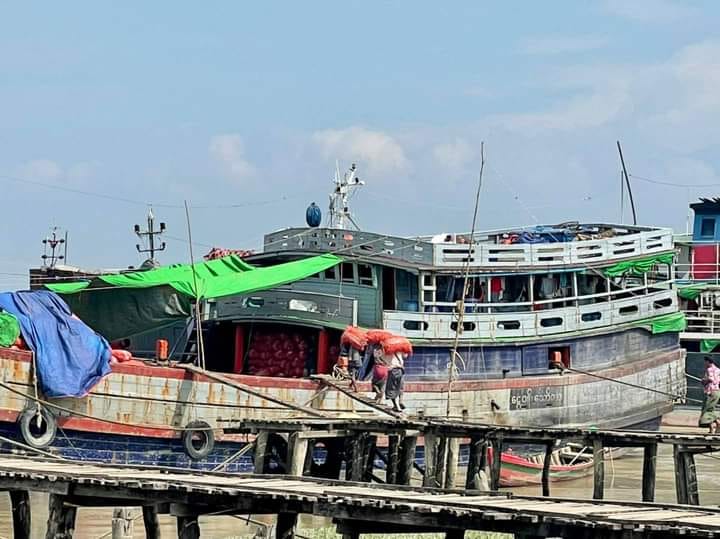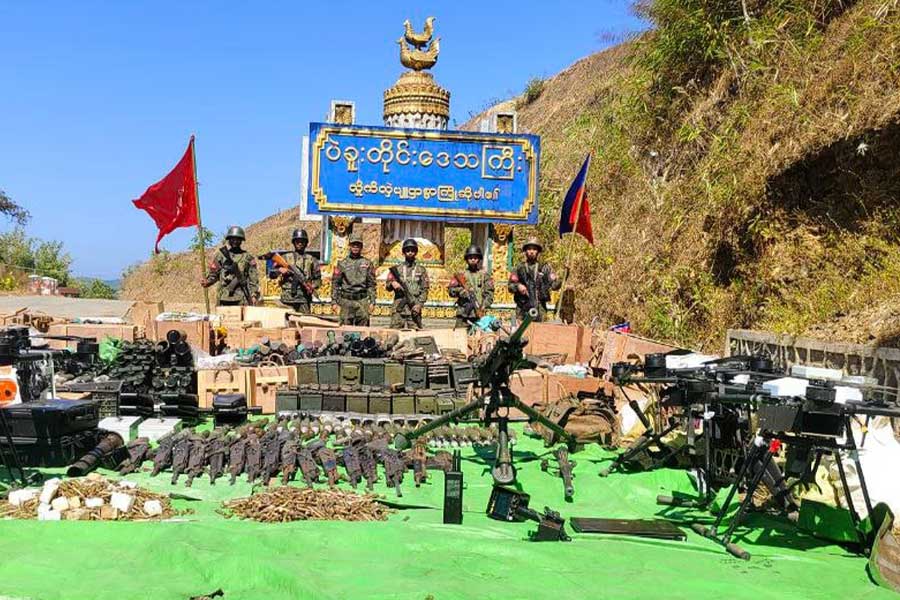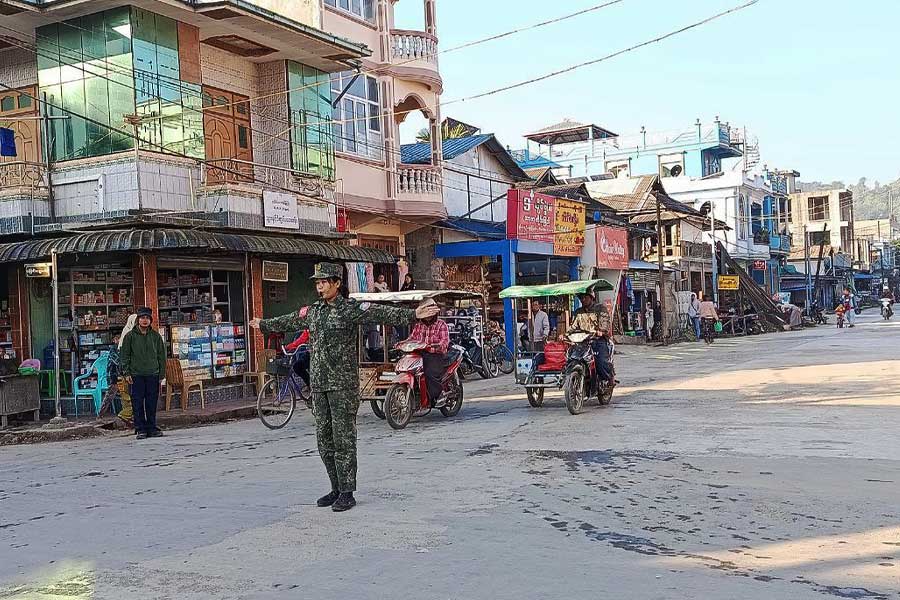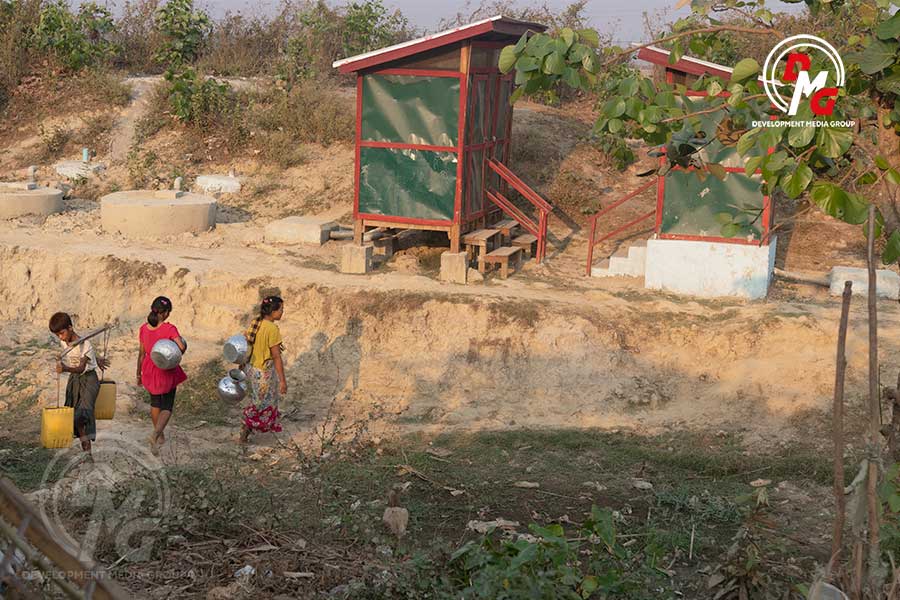- Coalition forced led by AA advances toward junta No. 16 weapons factory in Bago Region
- A Glimpse Into the 2026 Arakan State Parliament
- Junta airstrikes target military outposts seized by Arakan Army in Arakan State
- Motorbike spare part prices skyrocket in Arakan State amid tighter traffic rules
- Kyauktaw IDP camps struggle with inadequate latrines
Border traders struggle to do business after Central Bank of Myanmar’s forex edict
Border traders are facing difficulties after the Central Bank of Myanmar (CBM) earlier this month imposed strict monetary controls requiring that US dollars and other foreign currency be converted into kyats within one day of being received.
12 Apr 2022

DMG Newsroom
12 April 2022,Sittwe
Border traders are facing difficulties after the Central Bank of Myanmar (CBM) earlier this month imposed strict monetary controls requiring that US dollars and other foreign currency be converted into kyats within one day of being received.
Ko Aung Aung, a trader in Arakan State, said the US dollar was the main currency in the border trade with Bangladesh, and some businesses were losing money as they could only exchange for K1,850 per US dollar, the official rate set by the CBM.
“Some have to sell their products at a loss. Some may not even be able to sell their commodities at a loss. … Another thing is that the goods you buy [at the official exchange rate] do not match the US dollar value,” he said.
An unnamed border trader said the exchange rate set by the Central Bank of Myanmar could lead to money laundering, adding that the government needed to tackle the issue effectively.
“Some transfer money to a bank in Singapore and resell it to potential buyers in Yangon. That earns more than K1,900 per US dollar, so these [practices] too need to be addressed systematically,” the anonymous border trader added.
Ko Aung Aung said border traders were also struggling to do business due to limitations on bank withdrawals and delays in cash withdrawals at Myanmar’s banks.
“If there is no cash in the bank at the time of withdrawal, it will be transferred to the bank account. But on the other hand, you need cash to pay for labour costs and goods. As a result, it is still very difficult for merchants to trade,” he explained.
U Khin Maung Gyi, a veteran businessman, said the CBM’s new policy could expand the black market.
“The Central Bank of Myanmar’s exchange policy could have a devastating effect on the economy, leading to inflation and rising commodity prices, as well as devaluation of the kyat. This policy could allow the black market to expand. As a result, people may become dependent on the black market,” he said.
The CBM issued Notification No. 12/2022 on April 3, requiring that people in Myanmar convert their foreign currency earnings into Myanmar kyats within one working day. In a statement, the CBM said those who do not comply with the order would be prosecuted under the Foreign Exchange Management Law.
















.jpg)
